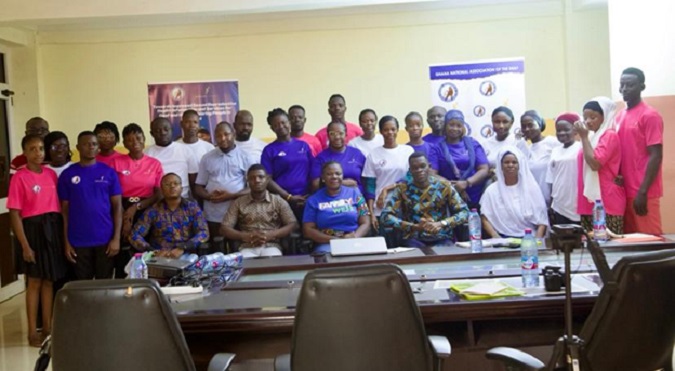GNAD members with some facilitators and stakeholders at the SRH training
The Ghana National Association of the Deaf (GNAD), supported by AmplifyChange, Strength Grant, has organised a capacity-building workshop for Sexual and Reproductive Health (SRH) youth champions in Tamale, the Northern Region.
The overall goal of the training is to equip participants with the required knowledge and capacities on the A–Z of SRH, including family planning and contraceptive use, so they are able to assist their peers in overcoming SRH-related challenges.
The capacity-building workshop for 24 out-of-school youth from deaf communities will help the beneficiaries serve as peer educators for deaf people in their respective communities across the country.
The project is being implemented in the Northern, Upper West, Upper East, and Eastern regions with specific key activities on gap analysis on access to SRH services for deaf people, capacity building for peer educators, community awareness durbars, and national advocacy.
Executive Director of GNAD, Juventus Dourinaah, said the roles of peer educators in promoting SRH information for the youth have been recognised worldwide as one of the most effective means of reaching more young people with youth-friendly SRH information that can assist them in making informed decisions about their SRH.
“The project will provide support in the form of sanitary pads to needy girls in the schools for the deaf as part of efforts to both assist needy deaf girls in managing their periods and to enable them to participate effectively in learning,” he said
Public Health Nurse, Ghana Health Service (GHS), Zenabu Sadik, who facilitated the training, lauded the SRH champions training by GNAD.
“It helps to prevent maternal mortality which is a big issue for the health system because a lot of women are dying because they want to get pregnant and deliver babies and so once we know our reproductive system it goes a long way to help them know their reproductive rights and services like family planning which helps to prevent sexually transmitted diseases, unwanted pregnancies and maternal mortality,” she said.
Stephen Abrokwah, a beneficiary of the training said, “We have learnt a lot from this training especially on sexual reproductive system and health and we will impact the skills and knowledge we have acquired to our colleagues.”
BY Eric Kombat, Tamale


